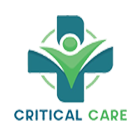- Home
- Departments
Departments Of ICU-Care
ICU-CareIntensive Care Units (ICUs) are specialized hospital units dedicated to providing comprehensive care for patients with life-threatening conditions or those requiring close monitoring and advanced medical interventions. ICU care involves a multidisciplinary approach aimed at stabilizing patients, preventing complications, and promoting recovery.
1. Specialized Staff: ICUs are staffed by a multidisciplinary team of healthcare professionals with specialized training in critical care medicine, including intensivists (critical care physicians), critical care nurses, respiratory therapists, pharmacists, nutritionists, physical therapists, and social workers. This team collaborates closely to provide personalized care tailored to each patient's needs.
2. Continuous Monitoring: Patients in the ICU are continuously monitored using advanced medical equipment to assess vital signs, oxygenation, cardiac function, neurological status, and other physiological parameters. This allows healthcare providers to detect changes in patient condition promptly and intervene as needed.
3. Advanced Life Support: ICUs are equipped to provide advanced life support interventions, including mechanical ventilation to support respiratory function, hemodynamic monitoring to assess cardiac function and fluid status, and vasopressor therapy to maintain blood pressure. These interventions help stabilize critically ill patients and support vital organ function.
4. Management of Complex Conditions: ICU care encompasses the management of a wide range of complex medical conditions, including sepsis, acute respiratory distress syndrome (ARDS), multiple organ dysfunction syndrome (MODS), traumatic injuries, and post-operative complications. Treatment plans are tailored to address the underlying cause of illness and prevent further deterioration.
5. Medication Management: Pharmacists play a vital role in medication management within the ICU, ensuring the safe and appropriate use of medications to optimize patient outcomes. They collaborate with the healthcare team to select the most effective pharmacological agents, adjust dosages based on patient response, and monitor for adverse effects and drug interactions.
6. Nutritional Support: Nutritional support is essential for critically ill patients to meet their metabolic needs and support healing and recovery. Nutritionists or dietitians work closely with the healthcare team to assess patients' nutritional status, develop individualized feeding regimens, and monitor nutritional intake to prevent malnutrition and promote wound healing.
7. Early Mobilization and Rehabilitation: Physical therapists play a crucial role in promoting early mobilization and rehabilitation for ICU patients, which has been shown to improve outcomes and reduce complications associated with prolonged bed rest. They develop personalized exercise programs and provide interventions to improve strength, mobility, and functional independence.
8. Family-Centered Care: ICU care extends beyond the patient to include support for their families and loved ones. Social workers provide emotional support, counseling, and assistance with navigating complex medical decisions. They also facilitate communication between the healthcare team and family members and help coordinate post-discharge care and support services.
9. Palliative and End-of-Life Care: In cases where recovery is unlikely, ICU care encompasses palliative and end-of-life care to ensure patients are comfortable and their wishes are respected. Palliative care specialists provide symptom management, psychosocial support, and assistance with advance care planning to promote dignity and quality of life for patients and their families.
Overall, ICU care is characterized by a holistic, patient-centered approach that prioritizes the stabilization of critically ill patients, prevention of complications, and promotion of recovery and well-being. The collaborative efforts of a highly skilled multidisciplinary team are essential for achieving optimal outcomes in the ICU setting.

